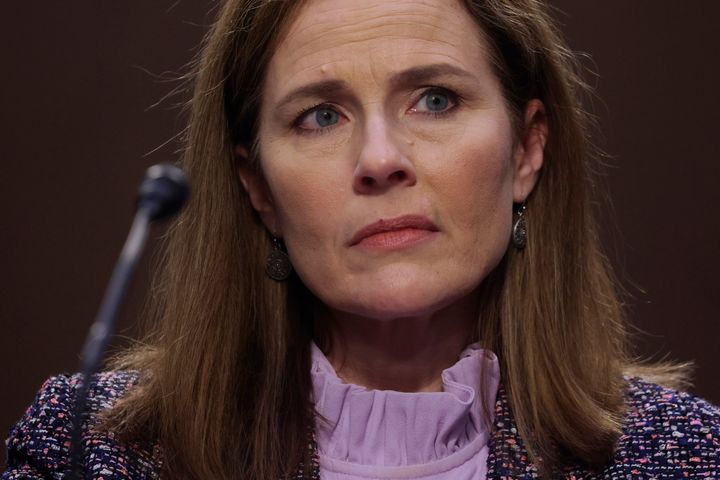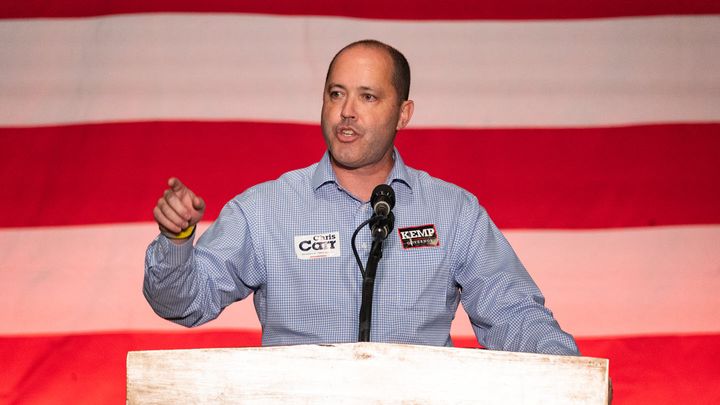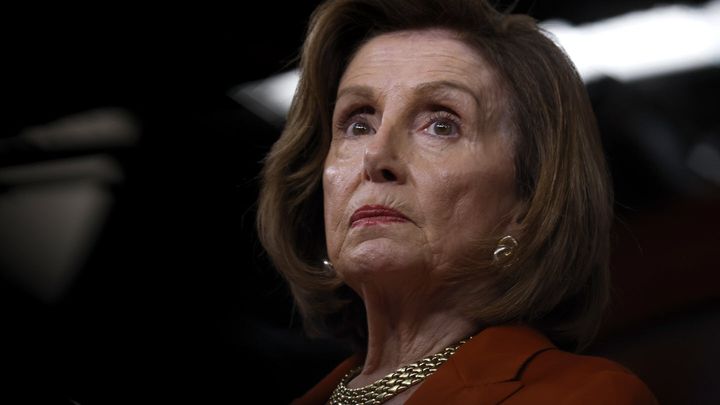The group that sponsored the anti-abortion ad signed by Amy Coney Barrett is an affiliate of a national anti-abortion group that is working to inspire legal challenges that it hopes will result in the Supreme Court voting to overturn Roe v. Wade.
Last week in confirmation hearings, the Supreme Court nominee repeatedly declined to express a view on Roe v. Wade, refusing to give a “thumbs up or a thumb down” on the controversial case. But Barrett’s views on abortion were brought into clear relief late last month when National Review reported that in 2006 she signed her name to a “right to life” newspaper ad sponsored by an anti-abortion group in Indiana that ran alongside a call to end Roe v. Wade, which it called “barbaric.” “Barrett’s signature is the most direct confirmation we have received that she believes there should be limits on abortion,” National Review wrote.
But the ad also creates an appearance of judicial bias because it was organized and financed by an affiliate of nonprofit organization National Right to Life Committee (NRLC), which has played a key role in advancing abortion litigation that could come before Barrett at the Supreme Court in a case that could challenge Roe v. Wade.
Last year, at least ten states passed anti-abortion laws with the intent to have them challenged in court cases that could rise to the Supreme Court. Many of these bills were backed by state affiliates of NRLC that have said they view them as part of a national strategy to prompt the Supreme Court to overturn Roe v. Wade or further undermine access to reproductive health options including abortion. Seven of the states passed what anti-abortion activists call “heartbeat bills,” banning and potentially criminalizing abortion around five or six weeks, before medical experts say that many women know they’re pregnant: Kentucky, Georgia, Mississippi, Missouri, Alabama, Louisiana and Ohio.
NRLC President Carol Tobias wrote of the state bills that “these legislative efforts are at the very heart of our work, and they are one of the keys to ending abortion in the United States,” in a January report.
Supreme Court justices decide on their own individual recusals, while federal statute states that “any justice, judge, or magistrate judge of the United States shall disqualify himself in any proceeding in which his impartiality might reasonably be questioned” and that they should disqualify themselves when they have “a personal bias or prejudice concerning a party.”
Barrett did not disclose her participation in the ad in the materials she presented to the Senate Judiciary Committee, leaving Democrats on the committee to ask the Department of Justice for an explanation. Shortly afterwards, it came to light that Barrett also did not disclose two talks she gave in 2013 on the topic of Roe v. Wade hosted by anti-abortion student groups at the University of Notre Dame. Barrett was also revealed to be a member of University Faculty for Life at Notre Dame from 2010 to 2016, an anti-abortion group that promoted a controversial South Bend’s Women’s Care Center that did not offer abortion services to potential patients. During her previous confirmation hearings for the Seventh Circuit Court, Barrett repeatedly affirmed that a judge’s personal convictions should not control their legal rulings and that she would follow Supreme Court precedent on reproductive issues.
The group that purchased the 2006 Barrett-signed ad, the Saint Joseph County Right to Life, says it is ”one of the oldest continuously active pro-life organizations in the nation.” The group is a county affiliate of Indiana Right to Life, which is a state affiliate of NLRC, the largest anti-abortion organization in the United States. NRLC claims more than 3,000 local chapters and says it “maintains a lobbying presence on Capitol Hill and serves as a resource provider for state affiliates, local chapters, individual members, the press, and the public.”
NRLC’s Form 990 for 2018 says that it “coordinates grassroots lobbying efforts” and “assists state affiliates seeking to enact protective legislation.” On its website, NRLC highlights 17 state approaches to time-based abortion bans, noting that each of the laws is not currently in effect due to legal challenges, with the exception of Indiana’s prohibition of abortion after 20 weeks.
In Ohio, the Right to Life affiliate was outspoken that it hoped a bill signed early in 2019 by Republican Governor Mike DeWine, after being passed by the Republican legislature, was aimed for the Supreme Court. “The heartbeat bill has the potential to be the vehicle that overturns Roe v. Wade,” Michael Gonidakis, president of Ohio Right to Life, said in a statement after a federal judge blocked the bill in July 2019 from going into effect. “We know that this temporary restraining order is just a step in the process to finally seeing Roe reconsidered.”
Ohio Right To Life reported lobbying on the bill, SB 23, in five reports filed with the state last year that named four agents, including the group’s president. On March 13, 2019, the group spent $4,390 on a Legislative Day function, and it reported seven additional lobbying reports on June 19, 2019 as a Pro-Life Women’s Caucus Luncheon. Many Right to Life local chapters reported lobbying on SB 23, such as those based in Cleveland and Dayton.
Northeast Ohio public radio station WKSU reported in January 2019 that while Ohio Right to Life had previously been neutral on the anti-abortion bill, the group, described as “one of the most influential lobby groups at the Ohio Statehouse,” had come around to support it after the appointment of Trump’s Supreme Court nominees tilted the court more conservative.
In March 2019, Mississippi Gov. Phil Bryant, a Republican, signed into law a ban on abortion procedures after 6 weeks of pregnancy. One of the bill’s authors said that Mississippi Right to Life had been one of the major lobbying groups in support of the bill, which served as the template for a version passed by the Louisiana Senate shortly after.
When Barrett was confirmed to her federal judgeship in 2017, NARAL President Ilyse Hogue said, “Barrett’s record speaks for itself. She is aligned with extreme, anti-choice organizations, and her writings make clear that she believes Roe v. Wade was incorrectly decided.”
A Sludge investigation last year found that NRLC and its affiliate the National Right to Life Educational Trust Fund took in more than $1.9 million from 2013 to 2017 from donors that could be identified, led by the Tulsa Community Foundation ($700,000), the Gary & Diane Heavin Community ($600,000), and the National Christian Charitable Foundation ($344,600).
As of early 2019, at least 20 state bills restricting abortion were in the pipeline to be considered by the Supreme Court. The nonprofit news organization Rewire maintains a legislative tracker of state laws such as those with time-based abortion bans.
The NRLC did not respond to a request for comment on Barrett signing its affiliate’s ad and how it views standards for judicial recusal.



